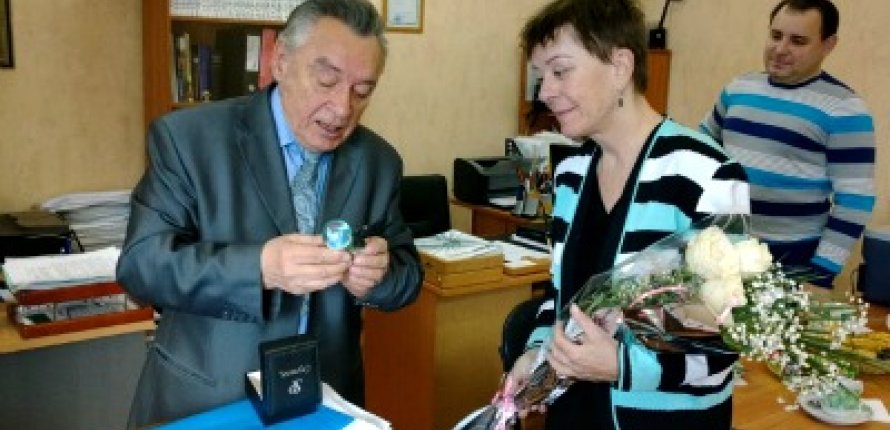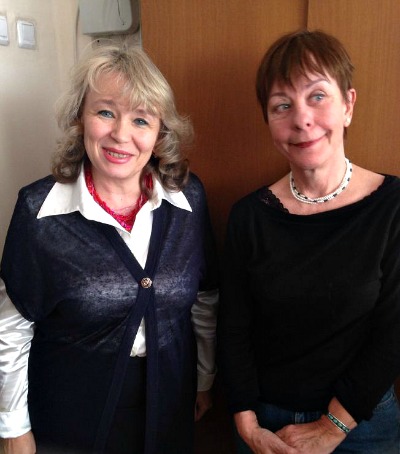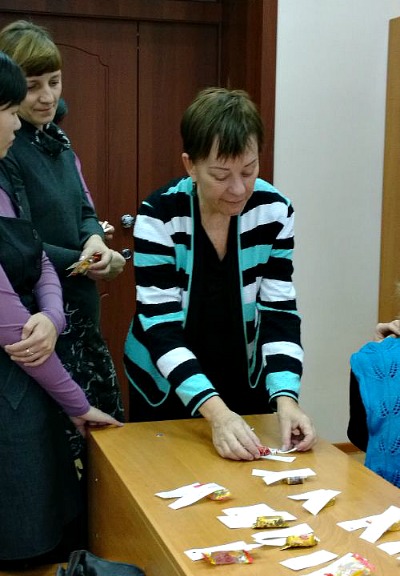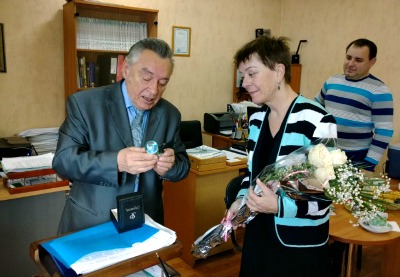Considering Fulbright? Look to Those Who Served Before You

Valerie Sartor, Intensive English Program Administrator at St. Mary’s University
2014-2015 TEFL Fulbright Scholar to Russia
 (L to R) The Department Head
(L to R) The Department Headat ELI and me
When considering a Fulbright grant, there are many ways of gathering information, but my best advice is to interview those who have served before you. While I was in the process of applying for a Fulbright in Russia, I read several personal and academic blog posts from former scholars who had been Fulbrighters in Siberia. I contacted three of them, and learned many useful facts, despite being in different academic fields. For example, in Siberia there are special deerskin boots you can buy from local markets that will keep your feet warmer than any American boot. Also, Russians use wireless modems, similar to USB flash drives in order to get Wi-Fi; they are moderately priced, extremely portable, and have excellent Internet connection and speed. I also asked my local campus Fulbright representative to connect me with past Fulbrighters. I briefly interviewed those who were currently professors on campus (writing out questions beforehand, as many were eminent professors and had little free time), and I also wrote to one professor who had relocated to a neighboring university. All these interactions gave me a sense of what to expect in Russia, especially regarding the political climate. Also, as a woman, female researchers emphasized different gender norms to be aware of, such as dressing very professionally, not casually a la U.S. universities, and that generally I was expected to wear makeup as well to complement my businesslike persona. Finally, I received an idea of what Fulbright expects in terms of service and ethics and gained a positive feeling of becoming part of a lively, highly educated community of scholars.
 Teacher training in Gorno Altai
Teacher training in Gorno Altai
As a Fulbright U.S. Scholar, from September 2014 until June 2015, I worked as a Fulbright Global TEFL Scholar in the Siberian city of Irkutsk, Russia. I served as a teacher trainer inside the Eurasian Linguistic Institute (ELI), a branch of Moscow State Linguistic University. I taught several advanced English writing classes to their graduate students and offered a teacher training seminar to the institute’s English teaching faculty. A few scholars also privately approached me and asked for help in publishing academic, peer-reviewed articles, which I did in collaboration with my department head in Russia and one younger teacher. In my second semester, I was also invited to help train the English Teaching Assistants (ETAs) in January 2015.
However, my assigned duties did not fully absorb all of my energy. With my extra time, I decided to branch out by offering other teachers various workshops that addressed communicative language teaching as well as reflecting upon what kinds of skills and behaviors a teacher needs in order to both thrive and excel. This took me to other cities in Russia, like Gorno-Altai, Ulan Ude, Kaliningrad, Moscow, and Bratsk. Such travel was invigorating and my workshops were well received. During my last semester in Irkutsk, I also began volunteering my services to students who had approached me for advice regarding the International English Language Testing System (IELTS). I began to offer weekend workshops to students interested in understanding this test and was fortunate enough to also witness my students pass the test, allowing them to apply for study abroad. At the same time, I inadvertently made myself into an IELTS coach (I had been a certified IELTS examiner prior to my Fulbright). IELTS, similar to the TOEFL, is a gateway English language examination for non-native speakers of English. Teachers and students alike were eager for my volunteer services. After I had left Russia, I heard that one student had successfully won a Fulbright study grant to the USA and three other students had made plans to start studying at Australian universities.
 Serving as a volunteer editor for a Russian journal
Serving as a volunteer editor for a Russian journal
After my Fulbright, in July 2015, I accepted a job as an the coordinator for a newly created Intensive English Program at St. Mary’s University, a small, private Catholic university in Texas. I am in charge of supervising my teachers, their curriculum, and of ensuring that my students succeed academically and feel comfortable while they are studying. My Fulbright experiences have made me more sensitive toward the needs of my international students: I myself have been an international scholar and I realize that a warm welcome can have great impact on the way students perceive not only me, but my university and my country. I want them to feel welcome, and to have a place where they can come and talk. Our program has recently connected international students to retired Catholic brothers who live on campus. This interaction assists both parties: the brothers feel useful and cared for and the students have the opportunity to converse with native speakers who are patient, accessible, and highly educated.
My advice, in a nutshell is that potential Fulbrighters, like teachers and scholars everywhere in the world, should look forward to being resourceful, patient, open minded, and self-starters. What you pack, or how you choose to get funds, is not as important as your mindfulness. Generating a positive mindset, being willing to accept uncertainly, these are ways to be successful not only as a Fulbrighter, but also as a member of the global community.
